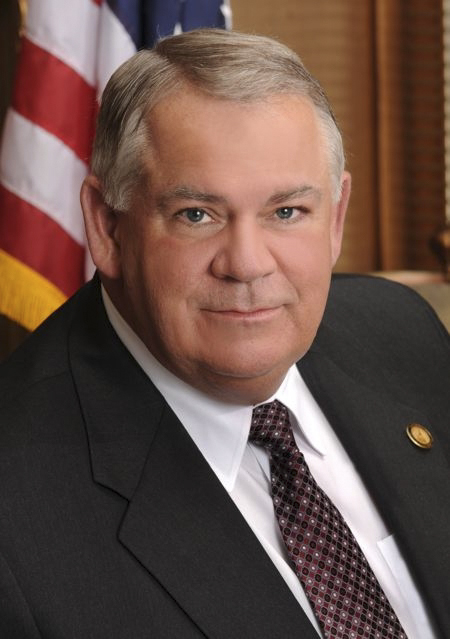
ATLANTA – Republican leaders in the Georgia House of Representatives doubled down Monday on the promised second phase of a state tax cut launched two years ago.
House Ways and Means Committee Chairman Bret Harrell introduced legislation to reduce Georgia’s personal income tax rate from the current 5.75% to 5.375%. Heading into this year’s legislative session, House GOP leaders were expected to propose cutting the tax rate to 5.5%.
“We will keep the promise we made to Georgians in 2018 and more,” House Speaker David Ralston said Monday during a luncheon speech at the Capital City Club in Atlanta sponsored by the Atlanta Press Club.
The personal income tax cut is part of a comprehensive tax reform bill that also would provide an earned income tax credit to working families but leave Georgia’s corporate income tax rate untouched at 5.75%.
“We want working Georgians, Georgia families, to realize the maximum benefit from this income tax cut,” Ralston said.
Legislative Democrats and some Republicans in the state Senate have warned against a further tax cut while the state struggles to bring in enough revenue to provide vital services. Tax collections have been coming in well below expectations for most of the past year, in part because of the 2018 tax cut, which reduced the income tax rate from 6.0% to 5.75%.
But Harrell, R-Snellville, said some new revenue increases would help offset the $250 million to $270 million impact of the tax cut, including collecting taxes on sales through third-party “marketplace facilitators” including Amazon and Google the legislature passed in January and a bill that would prohibit taxpayers from deducting federal income tax payments from their state income taxes.
“When people sit down and look at how state [revenues] are actually performing … it will reduce any likelihood of [pushback],” Harrell said.
Ralston also unveiled during Monday’s speech the introduction of two bills aimed at asserting the House’s authority as a co-equal branch of state government with the governor’s office.
The measures would limit the ability of the executive branch to withhold funds appropriated by the General Assembly and require executive branch agencies to provide budget-related information to the state House and Senate at the same time it is provided to the Governor’s Office of Planning and Budget (OPB).
Earlier in this year’s session, Ralston blamed a lack of timely information from the OPB for forcing the legislature to take off a week and a half so the House could focus solely on the budget.
“It is my sincere hope this will help us avoid some of the problems we had earlier this session,” the speaker said.